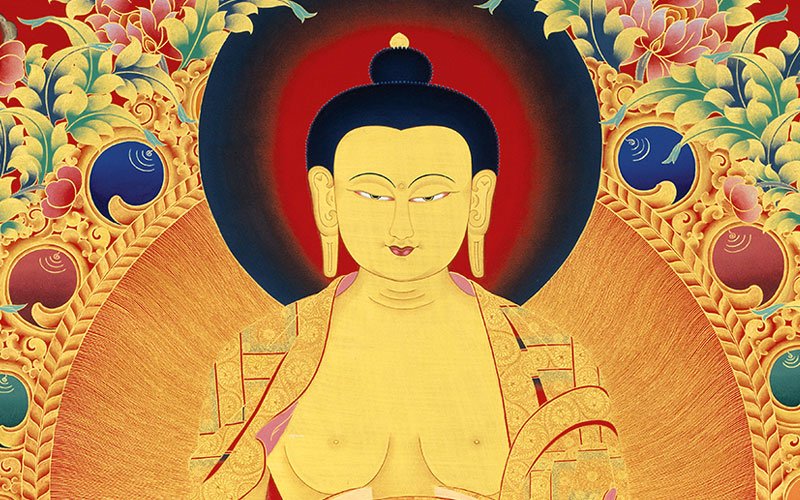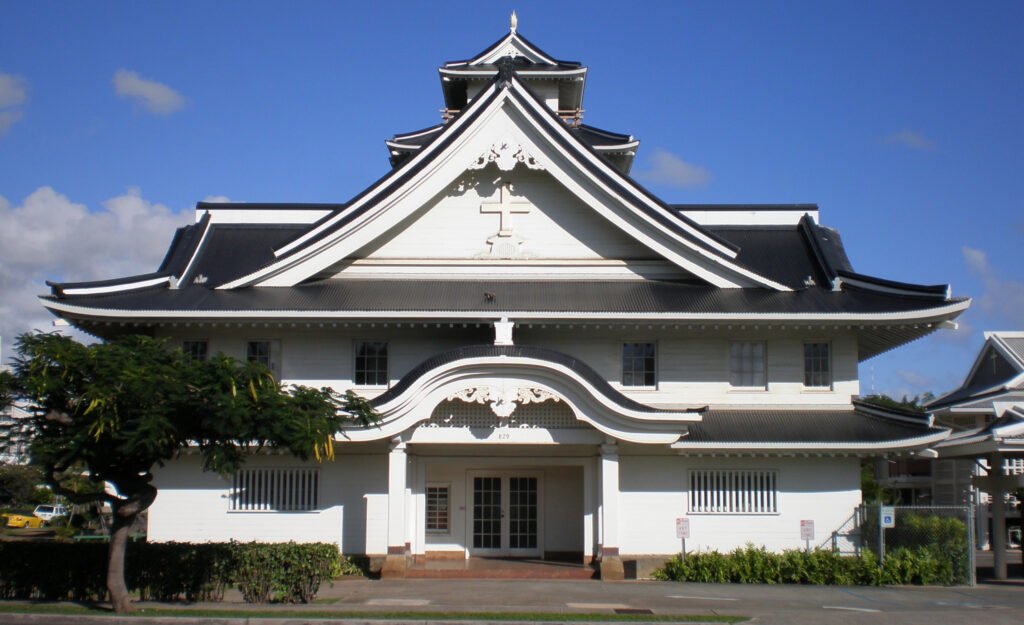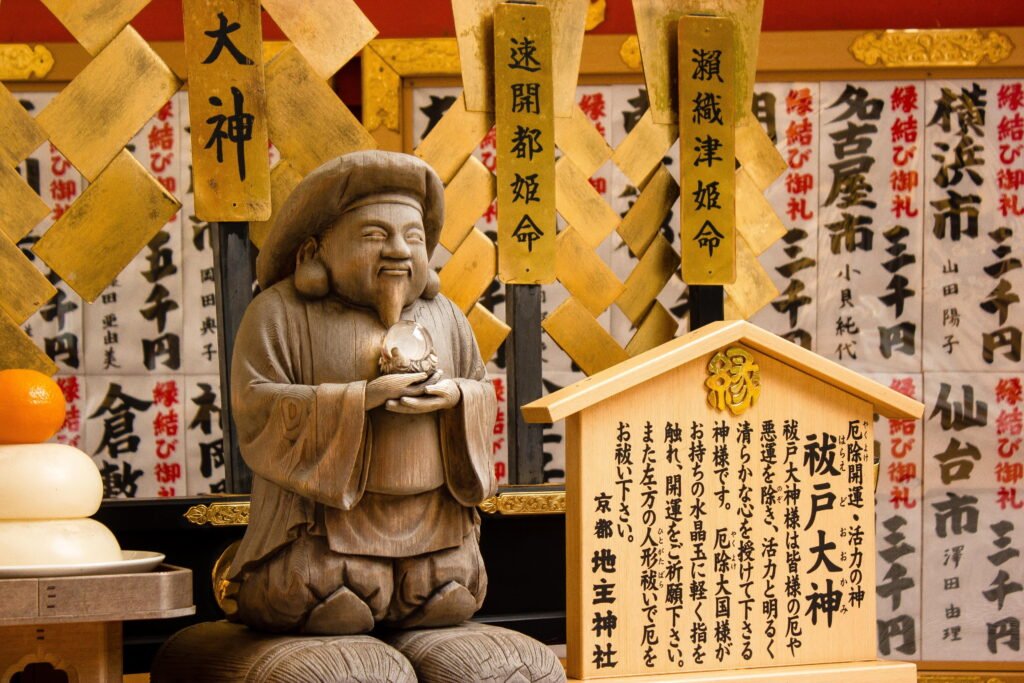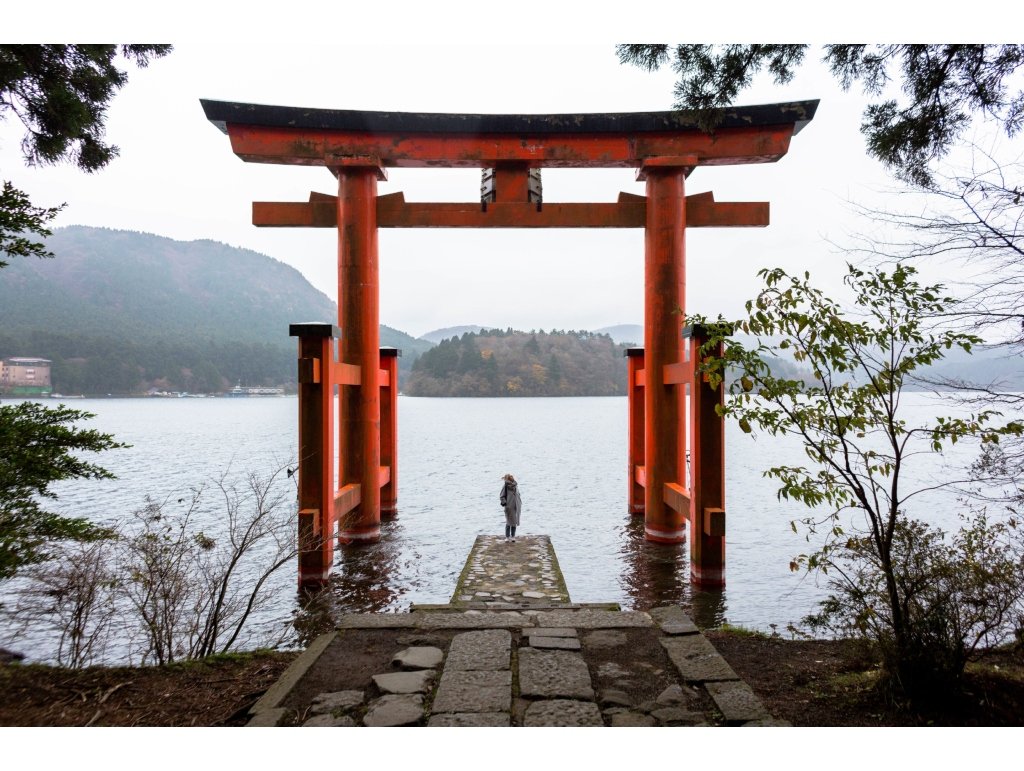Do you know what religion are Japanese People? Japan has a rich and diverse religious history, with a unique blend of indigenous beliefs and imported religions. While there is no official state religion in Japan, the majority of the population practices a combination of Shinto and Buddhism. However, there are also smaller communities of Christians, Muslims, and other religious groups in Japan. If you want to know more, you can join our Japanese classes, where we will teach you not just the Japanese language, but also the culture, such as the religion.

Shintoism: The Indigenous Religion of Japan.
Shintoism is the indigenous religion of Japan, with roots dating back to prehistoric times. It is a polytheistic religion that focuses on the worship of kami, or spirits, that are believed to inhabit natural objects and phenomena such as mountains, rivers, and trees. Shintoism also places a strong emphasis on purity and cleanliness, with rituals and practices designed to purify both the individual and the environment. Despite its ancient origins, Shintoism remains an important part of Japanese culture and society today.
Shintoism has had a significant impact on Japanese culture and society, influencing everything from art and architecture to festivals and traditions. Many Japanese people still practice Shintoism today, often alongside other religions such as Buddhism. Shinto shrines can be found throughout Japan, and many people visit them to pray for good fortune, health, and success. Shintoism also plays a role in Japanese weddings, where couples often participate in traditional Shinto ceremonies to bless their union. Overall, Shintoism is a unique and fascinating religion that continues to shape Japanese culture and identity.
Shintoism is an indigenous religion that has been practiced in Japan for centuries. It is based on the belief in kami, or spirits, that are present in all things, including nature, animals, and even humans. Shintoism emphasizes the importance of harmony with nature and the need to maintain a balance between humans and the environment. Many Japanese people still practice Shintoism today, often alongside other religions such as Buddhism. Shinto shrines can be found throughout Japan, and many people visit them to pray for good fortune, health, and success. Shintoism also plays a role in Japanese weddings, where couples often participate in traditional Shinto ceremonies to bless their union. Overall, Shintoism is a unique and fascinating religion that continues to shape Japanese culture and identity.
Shintoism is deeply ingrained in Japanese culture and has played a significant role in shaping the country’s identity. The religion’s emphasis on harmony with nature and the importance of purity and cleanliness can be seen in everything from traditional Japanese architecture to the country’s famous hot springs. Shinto shrines are an important part of Japanese life, and many people visit them to pray for good fortune and success. Shintoism also plays a role in Japanese festivals and traditions, such as the annual cherry blossom viewing and the New Year’s celebrations. Despite the influence of other religions, Shintoism remains an integral part of Japanese society and culture, reflecting the country’s unique history and traditions.

Buddhism: The Imported Religion.
While Shintoism is the indigenous religion of Japan, Buddhism was imported from China and Korea in the 6th century. Today, Buddhism is the second most widely practiced religion in Japan, with many Japanese people practicing a blend of both Shintoism and Buddhism. Buddhism emphasizes the Four Noble Truths and the Eightfold Path, and places a strong emphasis on meditation and mindfulness. Many Japanese people also practice other religions, such as Christianity or Islam, but these religions make up a much smaller percentage of the population.
Buddhism has had a significant impact on Japanese culture, influencing everything from art and architecture to philosophy and ethics. Many Japanese temples and shrines incorporate elements of both Shintoism and Buddhism, and it is not uncommon for Japanese people to participate in both religious practices. Buddhism has also played a role in shaping Japanese attitudes towards death and the afterlife, with many Japanese people turning to Buddhist practices and beliefs during times of mourning and grief. Overall, Buddhism has become an integral part of Japanese religious and cultural identity.
Buddhism was first introduced to Japan in the 6th century, when it was brought over from China and Korea. Over time, it became one of the dominant religions in Japan, alongside Shintoism. Today, there are many different sects of Buddhism in Japan, each with its own unique practices and beliefs. Some of the most popular include Zen Buddhism, Pure Land Buddhism, and Nichiren Buddhism. While Buddhism is not the only religion practiced in Japan, it has had a profound impact on the country’s culture and history, and continues to be an important part of Japanese identity.
In addition to Buddhism, Shintoism is the indigenous religion of Japan. However, Buddhism has become the second most widely practiced religion in Japan, with many Japanese people practicing a blend of both Shintoism and Buddhism. Buddhism emphasizes the Four Noble Truths and the Eightfold Path, and places a strong emphasis on meditation and mindfulness. Many Japanese people also practice other religions, such as Christianity or Islam, but these religions make up a much smaller percentage of the population.

Christianity: A Minority Religion in Japan.
While Shintoism and Buddhism are the dominant religions in Japan, Christianity is a minority religion with less than 1% of the population identifying as Christian. Christianity was introduced to Japan by Jesuit missionaries in the 16th century, but it faced persecution and was banned for over 200 years during the Edo period. Today, there are still some Christian communities in Japan, particularly in Nagasaki where Christianity was able to survive in secret during the ban.
Despite its small presence in Japan, Christianity has had a significant impact on the country’s history and culture. The arrival of Jesuit missionaries in the 16th century brought with it new ideas and technologies, and the spread of Christianity played a role in the downfall of the feudal system. Today, Christian churches can be found throughout Japan, with the largest concentration in Nagasaki. However, the majority of Japanese people still practice Shintoism and Buddhism, and Christianity remains a minority religion.
While Christianity has had a lasting impact on Japan, it has struggled to gain a foothold in the country. According to a 2019 survey by the Japanese government, only 1.5% of the population identifies as Christian. This is in stark contrast to neighboring countries like South Korea and the Philippines, where Christianity is the dominant religion. Some experts attribute Japan’s resistance to Christianity to its long history of isolationism and the strong influence of traditional Japanese religions. Despite this, many Japanese people are drawn to the teachings of Christianity, and the religion continues to have a small but dedicated following in the country.
Christianity was first introduced to Japan by Jesuit missionaries in the 16th century, but it faced persecution and was eventually banned in the 17th century. It wasn’t until the mid-19th century, when Japan opened up to the West, that Christianity was allowed to be practiced again. However, even with this newfound freedom, Christianity has struggled to gain a significant following in Japan. Many Japanese people are hesitant to convert to a religion that is seen as foreign and unfamiliar. Additionally, traditional Japanese religions like Shinto and Buddhism have a strong hold on the culture and continue to be the dominant religions in the country. Despite these challenges, there are still dedicated Christian communities in Japan, and the religion continues to have a lasting impact on the country’s history and culture such as Wikipedia explains.

Other Religions Practiced in Japan.
In addition to Shintoism, Buddhism, and Christianity, there are other religions practiced in Japan. These include Taoism, Confucianism, and various new religious movements. Taoism and Confucianism were introduced to Japan from China and have had a significant influence on Japanese culture and philosophy. New religious movements, such as Aum Shinrikyo, have gained notoriety for their controversial beliefs and actions. Despite the diversity of religious beliefs in Japan, many Japanese people practice a combination of Shintoism and Buddhism, known as Shinbutsu-shūgō.
Taoism, which emphasizes living in harmony with the natural world, has been practiced in Japan since the 9th century. Confucianism, which emphasizes social order and respect for authority, was introduced to Japan in the 5th century and has had a lasting impact on Japanese society. New religious movements, such as Aum Shinrikyo, have gained attention for their controversial beliefs and actions, including the 1995 Tokyo subway sarin gas attack. Despite the diversity of religious beliefs in Japan, many Japanese people practice a combination of Shintoism and Buddhism, known as Shinbutsu-shūgō. This syncretic approach to religion reflects the blending of indigenous Japanese beliefs with imported Buddhist teachings.
In addition to Shintoism and Buddhism, there are several other religions practiced in Japan. Taoism, which originated in China, emphasizes living in harmony with the natural world and has been practiced in Japan since the 9th century. Confucianism, which also originated in China, was introduced to Japan in the 5th century and has had a lasting impact on Japanese society, particularly in regards to social order and respect for authority. New religious movements, such as Aum Shinrikyo, have gained attention for their controversial beliefs and actions, including the 1995 Tokyo subway sarin gas attack. Despite the diversity of religious beliefs in Japan, many Japanese people practice a combination of Shintoism and Buddhism, known as Shinbutsu-shūgō. This syncretic approach to religion reflects the blending of indigenous Japanese beliefs with imported Buddhist teachings.
While Shintoism and Buddhism are the dominant religions in Japan, there are several other religions that are practiced in the country. Taoism, which emphasizes living in harmony with nature, has been practiced in Japan since the 9th century. Confucianism, which emphasizes social order and respect for authority, was introduced to Japan in the 5th century and has had a lasting impact on Japanese society. In addition, there are several new religious movements in Japan, some of which have gained notoriety for their controversial beliefs and actions. Despite the diversity of religious beliefs in Japan, many Japanese people practice a combination of Shintoism and Buddhism, known as Shinbutsu-shūgō, which reflects the blending of indigenous Japanese beliefs with imported Buddhist teachings.

The Role of Religion in Japanese Culture and Society.
Religion plays a significant role in Japanese culture and society. Shintoism, in particular, is deeply ingrained in Japanese traditions and customs, such as the annual New Year’s shrine visit and the practice of purification rituals. Buddhism also has a strong presence in Japan, with many temples and shrines scattered throughout the country. Religion has also influenced Japanese art, literature, and architecture, with many famous works reflecting Buddhist and Shinto themes. Despite the decline in religious affiliation in recent years, religion remains an important aspect of Japanese identity and culture.
Shintoism, which is the indigenous religion of Japan, is based on the belief in kami, or spirits, that inhabit natural objects and phenomena. Shinto shrines are found throughout Japan, and many Japanese participate in rituals and festivals that honor these spirits. Buddhism, which was introduced to Japan in the 6th century, also has a strong presence in Japanese culture. Many Japanese practice a combination of Shintoism and Buddhism, and it is not uncommon to see Buddhist temples and Shinto shrines located side by side. Other religions, such as Christianity and Islam, have a smaller presence in Japan, but still play a role in the country’s religious landscape. Overall, religion continues to be an important aspect of Japanese culture and society, shaping the way people live, work, and interact with each other.
In Japan, religion is deeply intertwined with culture and society. Shintoism, the indigenous religion of Japan, is based on the belief in kami, or spirits, that inhabit natural objects and phenomena. Shinto shrines are found throughout Japan, and many Japanese participate in rituals and festivals that honor these spirits. Buddhism, which was introduced to Japan in the 6th century, also has a strong presence in Japanese culture. Many Japanese practice a combination of Shintoism and Buddhism, and it is not uncommon to see Buddhist temples and Shinto shrines located side by side. Other religions, such as Christianity and Islam, have a smaller presence in Japan, but still play a role in the country’s religious landscape. Despite the influence of modernization and globalization, religion continues to be an important aspect of Japanese culture and society, shaping the way people live, work, and interact with each other.
Shintoism and Buddhism are the two main religions in Japan, and they have a significant impact on Japanese culture and society. Shintoism is deeply rooted in Japanese history and mythology, and it emphasizes the importance of nature and the spirits that inhabit it. Many Japanese participate in rituals and festivals that honor these spirits, such as the annual New Year’s shrine visit and the summer festival of Obon. Buddhism, on the other hand, focuses on the teachings of the Buddha and the pursuit of enlightenment. Many Japanese practice a combination of Shintoism and Buddhism, and it is not uncommon to see Buddhist temples and Shinto shrines located side by side. Other religions, such as Christianity and Islam, have a smaller presence in Japan, but they still play a role in the country’s religious landscape. Despite the influence of modernization and globalization, religion continues to be an important aspect of Japanese culture and society, shaping the way people live, work, and interact with each other.







